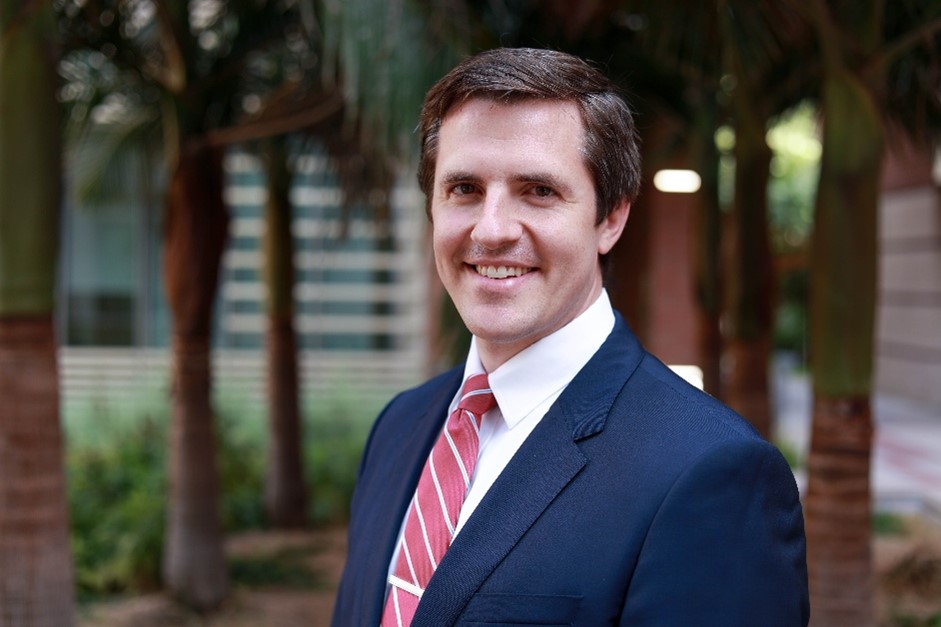Dr. Jonathan B. Hopkins
Seminar Information

In this seminar a variety of mechanical systems will be presented that physically embody
intelligence via the deformation of constituent compliant elements. So long as their elements do
not yield, these systems, called compliant mechano-intelligent systems, achieve high
repeatability, experience no backlash, avoid friction and hysteresis, produce no wear or
particulates, and can be fabricated on the micro-scale. Consequently, they can be made to learn
behaviors or perform complex computations with sufficient precision, accuracy, and speed in a
small enough volume to enable artificial-intelligent metamaterials. Specifically, this seminar will
review the concept of mechanical neural networks (MNNs) as architected materials that
autonomously learn their behaviors and properties with increased exposure to unanticipated
ambient loading conditions. Like how artificial neural networks (ANNs) learn by tuning their
scalar weights to map know input and output data, MNNs are physical versions of ANNs in that
they learn by tuning the stiffness of their constituent beams to map known input and output
forces and displacements. This seminar will also introduce and compare both digital and analog
approaches for computing mathematical operations in harsh environments where electronics
would fail. Such environments include: radiation-rich, extreme temperature, chemically
corrosive, large magnetic field, excessively dusty, highly statically charged, or other
environments that experience large fluctuations in ambient conditions or surges in electricity.
The digital approach leverages flexure-based bi-stable memory bits and logic gates joined
together to perform calculations using discrete states of deformation, while the analog approach
uses a single one-piece structure that deforms according to continuous input displacements.
Jonathan Hopkins is a full professor and Vice-chair for Graduate Affairs in the Mechanical and
Aerospace Engineering Department at the University of California, Los Angeles (UCLA). He is
the director of the Flexible Research Group and conducts research toward enabling the design
and fabrication of flexible structures, mechanisms, and materials that achieve extraordinary
capabilities via the deformation of their constituent compliant elements. Prior to coming to
UCLA, Jonathan was a postdoc at Lawrence Livermore National Laboratory and received his
Ph.D., master’s, and bachelor’s degrees all in the Mechanical Engineering Department at the
Massachusetts Institute of Technology (MIT). He was honored by President Barack Obama at the
White House with a Presidential Early Career Award for Scientists and Engineers (PECASE),
which is the highest honor bestowed by the United States Government on science and
engineering professionals in the early stages of their independent research careers. Jonathan also
received ASME's prestigious Freudenstein/General Motors Young Investigator Award, UCLA's
Watanabe Excellence in Research Award, the Northrop Grumman Excellence in Teaching
Award, and is an ASME Fellow. Jonathan is the creator and host of the educational YouTube
channel, "The FACTs of Mechanical Design."
